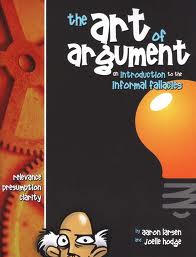A Looming Crisis — & a Call for Solutions
May 6th, 2013 // 3:51 pm @ Oliver DeMille
Most Americans have no ideas it is coming. But it is just around the corner.
It’s one of those technical changes that only wonks pay attention to, so few people realize how big this will be.
In fact, it’s a serious crisis in the making. And unlike the Y2K scare in 1999, this crisis is a sure thing.
What is it?
Well, put simply, this coming January, many companies will be required to extend Obamacare health care to their employees.
The costs of this are significant, and will force many small and larger businesses to make some very tough choices.
The result will be a lot of layoffs, downsizing, reduced pay, and outsourcing.
Service will suffer, and response times will plummet.
Most families and individuals plan on a yearly basis, running January 1 to December 31, so they may not know how that a lot of businesses run on a fiscal year—from April 1 to April 1, July 1 to July 1, or October 1 to October 1.
This is very important, because we just witnessed the first big round of businesses (whose fiscal year is April to April) factoring in the costs of the January 2014 Obamacare requirements.
The number of layoffs and cuts is a serious concern.
But those who run April to April have only had to factor in three months of Obamacare costs so far, so the damage has been minimal.
It’s going to get increasingly worse on July 1, and then by October 1 it will start having a major impact.
By the first of January, when everyone will have to pay the higher costs, the effect will be huge.
Again, because this is a numerical concern, most people aren’t paying attention. Here’s the crux of the problem:
- Our economy is already struggling with a weak recovery.
- The increasing tax and regulatory burden on business has dampened innovation.
- The schools seldom teach innovation or initiative—indeed they usually promote the opposite.
- International innovation is rising.
- Business is reticent to invest or spend, because the current environment in Washington is highly uncertain.
- Big business, which has a high surplus right now, is finding better political environments in other nations—so the money will naturally flow to where business is treated better.
- The Obamacare requirements are making business a lot more costly, and they mostly kick in this coming January.
A lot of businesses are scrambling.
For example, in the past few months I’ve received email from a number of friends who are business owners or who consult with small businesses—saying that their only choice is to either lay off a lot of employees or shut down their business.
One company, for example, is trying to prepare for next year, but has realized that the additional cost of Obamacare for their firm will be at least $18,000 a month.
This is a fairly small company, with close ties to its people.
The last thing it wants to do is lay off employees. But what to do? The costs are simply prohibitive.
Laying off is the obvious option; and after digging deeper, it may be the only option.
How would you counsel companies in this predicament? (Note that most companies are dealing with this right now.) What ideas do you have? I’m sincerely asking for input.
What can they do?
Thousands of companies are asking the same thing right now, and many others will do so before the end of 2013.
This is going to be a real shock to the economy.
A crisis is coming.
But back to the question. How can small companies that are already financially tight comply with the new regulations—without laying off or cutting salaries?
I’m hoping you see some real solutions.
The obvious one is to innovate—to expand sales into new markets and make a lot of extra cash.
The regulatory challenges of such a strategy are, alas, a serious problem. At least in the United States.
So, thinking like an owner, what would you do?
I know you don’t have financials or details in front of you for any one company facing this challenge, but take a stab at this problem anyway—because almost all businesses are doing the same thing right now. It’s the only realistic way to look at Obamacare, because it’s the way pretty much every business owner is looking at it.
Specifically: Costs are going up significantly, with no offsetting increases in income.
In fact, higher taxes and increased regulations make growth even more difficult.
In this environment, how can you absorb the Obamacare costs without laying off a bunch of employees?
Or letting them go and hiring all new people who are desperate for jobs and will work for much lower pay?
Or simply taking your business to Brazil or India or some other country where growth is actually rewarded?
Please send me your responses. What can be done?
***********************************
 Oliver DeMille is the chairman of the Center for Social Leadership and co-creator of Thomas Jefferson Education.
Oliver DeMille is the chairman of the Center for Social Leadership and co-creator of Thomas Jefferson Education.
He is the author of A Thomas Jefferson Education: Teaching a Generation of Leaders for the 21st Century, and The Coming Aristocracy: Education & the Future of Freedom.
Oliver is dedicated to promoting freedom through leadership education. He and his wife Rachel are raising their eight children in Cedar City, Utah.
Category : Blog &Economics &Entrepreneurship &Featured &Government &Leadership &Producers &Prosperity
How to Get More out of What You Read
March 13th, 2013 // 11:37 am @ Oliver DeMille
Two Books Reviewed by Oliver DeMille
 People often ask me if I’m going to write a book called Thomas Jefferson Education for Adults.
People often ask me if I’m going to write a book called Thomas Jefferson Education for Adults.
They usually say this after reading my books A Thomas Jefferson Education or A Thomas Jefferson Education for Teens, or both.
They get excited about getting a truly great education, not settling for anything less than the highest quality of learning for themselves and their children, and they wonder how to really get that kind of education themselves.
My answer is always, “Start reading the classics.”
When people follow this suggestion, many of them soon realize they’re not getting as much out of their reading as some people seem to.
When they ask how they can get more from their reading, I frequently tell them to study the logical fallacies.
Too many classrooms and schools today teach students what to think rather than how to think, and even many professional and graduate schools focus on when to think.
Teaching students how to think (deeply, broadly, creatively, innovatively, etc.) seems to be a lost art in too much of our modern educational system.
Two books on fallacies are an excellent response: The Art of Argument by Aaron Larsen, Joelle Hodge, and Chris Perrin, and Joseph Spider and the Fallacy Farm by David Grant.
Read these books together, since the first is an excellent workshop on how to think and the second is a fun story that will pull in younger students.
These books not only teach readers how to think, they inspire them to engage thinking.
In short, to think.
A lot.
Specifically, these two books teach a number of fallacies of thinking—in an interesting and effective way.
I highly recommend them for any youth, parent and teacher who wants to boost their students’ thinking ability.
In fact, both books are a great read for any adult.
When people know the fallacies, they automatically start thinking more deeply and they get a lot more out of everything they read—especially the classics.
So if you’re reading important books and want to significantly increase your rate of learning from them, check out these two books.
It’ll make a huge difference for your students and, even more importantly, for you.
***********************************
 Oliver DeMille is the chairman of the Center for Social Leadership and co-creator of Thomas Jefferson Education.
Oliver DeMille is the chairman of the Center for Social Leadership and co-creator of Thomas Jefferson Education.
He is the author of A Thomas Jefferson Education: Teaching a Generation of Leaders for the 21st Century, and The Coming Aristocracy: Education & the Future of Freedom.
Oliver is dedicated to promoting freedom through leadership education. He and his wife Rachel are raising their eight children in Cedar City, Utah.
Category : Blog &Book Reviews &Education &Featured
The Latest Filibuster
March 11th, 2013 // 1:11 pm @ Oliver DeMille
A Giant Step for Mankind…
 Okay, the subtitle of this article is a little overblown, but I heard something that I found just plain fascinating the other day.
Okay, the subtitle of this article is a little overblown, but I heard something that I found just plain fascinating the other day.
In fact, it is something I haven’t heard for a long time.
I was researching in a university library, sitting at a table looking for data in a stack of scholarly journals, when I heard the most unlikely thing in such a place.
“Rand Paul’s filibuster is so cool,” a girl’s voice said. My mind was focused on tables of World Bank summaries of currency values in industrial nations, and there were a lot of voices as students walked past and talked.
Most of them talked about classes, romances or roommates, and I tuned out to their words as I researched.
But my ears perked up and my mind tuned in when I heard these words.
I looked up to see a college girl, probably late teens or early twenties walking with three friends. The others nodded in response to her words.
“Really?” I thought, “Somebody thinks a national Republican figure is cool?” When I’ve heard such words before, it was always reserved to President Obama.
I mean, Ronald Reagan gets his share of praise from the older crowd, but the college students I’ve overheard recently saying a politician is cool have all mentioned either Obama or Ron Paul.
But a Republican who really could win the nomination, this was something different.
As a writer, I like to read and research in libraries (‘cause that’s where the books are, to paraphrase Willy Horton), restaurants and other public areas.
People walk by talking about things, and often they say something that helps an author’s thought process.
I went back to my research, and I forgot about the incident until I went to lunch.
As I balanced my attention between a salad and a copies of the World Bank tables, I was shocked to hear a girl from the next table say, “Did you see the filibuster yesterday? Rand Paul is so cool.”
I turned my head, expecting to see the same group of students, but to my surprise a whole different group sat there nodding.
What has happened?
Is it possible that Republicans will come up with a cool candidate in 2016?
Maybe.
It’s a long way off, to be sure.
But the hippest candidate always wins, or at least has in every election since the technicolor media age began in earnest around 1980.
Howard Dean once said that the way to know who won a presidential debate is to turn off the sound and just watch their body language.
On an even bigger scale, just turn off the television and internet and ask college-age students which candidate is really cool.
Jeb Bush suggested recently that he might run, Time magazine called potential candidate Marco Rubio the Savior of the Republican party.
Or did it just ask us if Rubio might redeem a party that can’t seem to get the Latino vote vital to winning the White House.
The whole idea of electing a cool president is frustrating for many on the Right, who see this as shallow popularity contesting in what should be one of the most serious votes anyone makes in an election year.
Still, the cool test wins every time, whether or not it should.
One thing is for sure.
Hillary Clinton is considered way cool, so if Republicans have any desire to take back the presidency in 2016 they need to meet a high standard.
More Mr. Smith Goes to Washington filibusters may be ahead, but Senator Paul’s filibuster seems to have caught many young people’s attention because it was so sincere.
That’s hard to duplicate, but for now Rand Paul’s popularity in the college crowd is worth watching.
***********************************
 Oliver DeMille is the chairman of the Center for Social Leadership and co-creator of Thomas Jefferson Education.
Oliver DeMille is the chairman of the Center for Social Leadership and co-creator of Thomas Jefferson Education.
He is the author of A Thomas Jefferson Education: Teaching a Generation of Leaders for the 21st Century, and The Coming Aristocracy: Education & the Future of Freedom.
Oliver is dedicated to promoting freedom through leadership education. He and his wife Rachel are raising their eight children in Cedar City, Utah.
Category : Blog &Culture &Current Events &Featured &Government &Leadership &Politics
Is China Really a Threat?
March 11th, 2013 // 1:01 pm @ Oliver DeMille
 I try to read most new books on China, because I think the growth of China on the world stage will continue for some time and eventually conflict with America’s interests.
I try to read most new books on China, because I think the growth of China on the world stage will continue for some time and eventually conflict with America’s interests.
Whether the conflict turns to cooperation or serious difficulty remains to be seen, but keeping abreast of what is happening in China is essential for today’s leaders.
A new book, Is China Buying the World? by Peter Nolan, is an interesting addition to the field and adds several key ideas to the dialogue.
First, it makes the case that no, China is not buying the world any more than Japan bought it in the 1980s (despite widespread fears that this was occurring).
Second, however, China is certainly growing economically and in world influence.
Chinese firms have purchased ownership in a number of companies around the advanced world, as well as tying up access to a lot of natural resources in the developing world.
And numerous multi-national companies have heavily invested in China.
This growth will likely continue, and even expand.
Third, China’s major challenge is restricted access to oil and energy.
As it grows, its thirst for energy will continue to increase and drive its international business expansion.
Fourth, China wants to be a much bigger player on the world scene, and it is following a specific strategy for global influence.
This strategy includes major investments in two key sectors of the world economy, banking and the aerospace industry.
Chinese leaders hope that together, these things—increased investment in the developing world, increased ownership of international resources especially oil, growing global investment in China, increased ownership in multi-national companies, major growth of Chinese influence in the banking and aerospace sectors—will significantly strengthen China’s world role.
Fifth, advances in the aerospace industry are significant because of the close ties between military and business technologies and projects.
As China increases its role in this endeavor, along with banking, it becomes more powerful economically, technologically and, if it chooses, militarily.
This book is a detailed and important read for anyone who cares about the future of the big powers in world relations.
More to the point, more people need to read and think more about the specific issues currently at play in China’s growth.
***********************************
 Oliver DeMille is the chairman of the Center for Social Leadership and co-creator of Thomas Jefferson Education.
Oliver DeMille is the chairman of the Center for Social Leadership and co-creator of Thomas Jefferson Education.
He is the author of A Thomas Jefferson Education: Teaching a Generation of Leaders for the 21st Century, and The Coming Aristocracy: Education & the Future of Freedom.
Oliver is dedicated to promoting freedom through leadership education. He and his wife Rachel are raising their eight children in Cedar City, Utah.
Category : Blog &Book Reviews &Business &Current Events &Economics &Featured &Foreign Affairs
Bigger Isn’t Always Better
February 13th, 2013 // 4:04 pm @ Oliver DeMille
 In the push for more gun control and changes to our national immigration policy, a few very important things have been mostly left out of the news in recent weeks.
In the push for more gun control and changes to our national immigration policy, a few very important things have been mostly left out of the news in recent weeks.
They have been mentioned, yes, but not emphasized.
And these items deserve to be seriously considered by all Americans.
- First, economic figures came out last week showing that the U.S. economy actually shrank during the last quarter of 2012—with negative growth in the U.S. GDP. The Administration waived this off as hardly newsworthy, a mere blip in many months of growth, but for those who closely watch the economy this is a serious concern. Recession hurts us all.
- Second, a poll last week showed that 53% of American citizens consider the federal government a threat in their lives.[i] This is very different from an approval rating. In fact, this is extreme. A majority of Americans now see Washington as a threat. This is a big deal, because a nation that doesn’t trust its government is going to become increasingly dysfunctional—and solutions are going to be more difficult in such an environment.
- Third, a new article argues that Congress and some federal Executive-Branch agencies are prone to political corruption[ii]—especially from well-funded special interest groups. The article concluded with concern that it is probably only wishful thinking to hope we can ever return to being governed according to clear, known, accepted principles instead of bureaucratic complexities. Government now is just too big.
- Fourth, as a corollary of item three, the complexity brought on by the sheer size of the federal apparatus has created the same level of bureaucratic technicality at the state and many local levels of government. Even our towns, cities and counties now tend to operate in the complicated style of federal agencies, where simplicity is suspect and byzantine rules apply to things that should be easy and straightforward. Locales are often funded from Washington and find that their otherwise uncomplicated systems must be complex in order to interface with federal offices and programs. The World Economic Forum ranked the United States 76th in free economic burdens on business growth.
- Fifth, many modern governments are now in the business of creating new “rights,” telling people that they need these “rights,” and then finding that the government can’t afford to fund these “rights.”[iii] This causes government to grow even more, in the desperate attempt to fund newly-established “rights” by consistently increasing taxes. Note that such “rights” aren’t inalienable, but rather established by governments. Among these “rights” are health care, unemployment income, and the pursuit of money for a growing number of consumer wants.
- Sixth, the U.S. infrastructure of roads, bridges, electric grids and drinking-water systems will cost $2 trillion to bring up to first-world standards.[iv] This at a time the government can hardly afford its current liabilities.
In short, government policies are slowing or reversing our economic growth, the people don’t trust their government, the government just keeps growing and growing, costs are increasing, and government is becoming increasingly complex and difficult to manage at all levels.
This same bundle of policies—along with massive involvement in foreign wars—brought down many of the empires of history, including the Roman, Ottoman and British.
Perhaps the six items outlined above haven’t led the news cycle simply because they aren’t really anything new.
Most regular Americans probably already knew about these trends—at least at a gut level—before they were officially announced.
Still, these are in many ways the big news of 2013.
This is the new environment in which we live, and all of these trends are making freedom less likely to flourish in the months, years and decade ahead.
Government is simply too big right now, and as it continues to increase in size many more such problems will naturally arise.
[i] See discussion on This Week with George Stephanopoulos, February 3, 2013.
[ii] Richard A. Epstein, “The Perilous Position of the Rule of Law and the Administrative State,” Harvard Journal of Law and Public Policy, Winter 2013, vol. 36, no. 1, pp. 5-19.
[iii] See, for example, ibid, pp. 10-12.
[iv] See Fareed Zakaria, “Can America Be Fixed?” Foreign Affairs, January/February 2013, p. 28.
***********************************
 Oliver DeMille is the chairman of the Center for Social Leadership and co-creator of Thomas Jefferson Education.
Oliver DeMille is the chairman of the Center for Social Leadership and co-creator of Thomas Jefferson Education.
He is the author of A Thomas Jefferson Education: Teaching a Generation of Leaders for the 21st Century, and The Coming Aristocracy: Education & the Future of Freedom.
Oliver is dedicated to promoting freedom through leadership education. He and his wife Rachel are raising their eight children in Cedar City, Utah.
Category : Blog &Current Events &Economics &Featured &Politics











